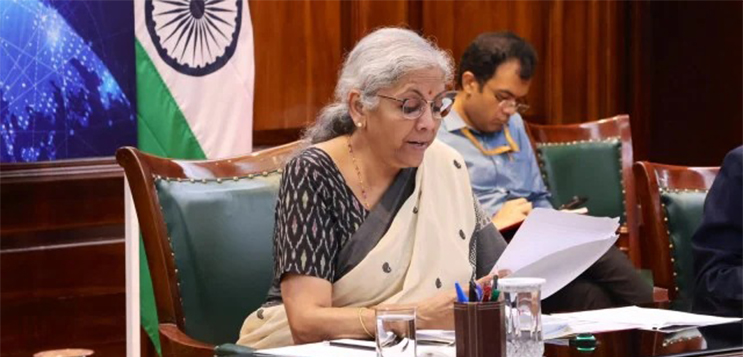
“To accelerate progress on SDGs, there is an urgent need to address the $4 trillion dollar financing gap,” declared Nirmala Sitharaman, India’s Finance Minister, during her address at the 3rd Voice of Global South Summit. This staggering figure highlights a critical challenge that developing countries are facing: the severe shortfall in the funds required to meet their development goals and tackle global issues. Sitharaman emphasised that without immediate reforms in multilateral development banks (MDBs), the prospect of bridging this gap remains bleak.
Sitharaman’s concerns were underscored by recent reports indicating that progress on many Social Development Goals (SDGs) in developing economies is stagnating, with some indicators even regressing. The Global South, in particular, is bearing the brunt of this financial shortfall, exacerbated by global uncertainties.
However, concerns about the financing gap extend beyond just the SDGs. The need for significant investments is also crucial for developing countries like India to align with stringent European Union (EU) sustainability standards that are set to come into force soon. Meeting these regulations will require substantial investment in technology, training, and the development of alternative systems —areas that are currently underfunded. The $4 trillion financing gap Sitharaman highlighted represents the vital resources needed for developing nations like India to align with European standards and maintain their export competitiveness in the face of increasingly rigorous European regulations.
For instance, in 2022, India exported approximately 200 million kilograms of tea and 350,000 metric tons of coffee to the European Union, along with over $40 billion worth of textiles and apparel. These exports are now at risk if the required sustainability standards are not met. The impending European DPP (Due Diligence and Product Traceability) regulation will likely increase costs for Indian exporters due to the need for compliance with these strict requirements, potentially eroding India’s competitive edge. These new costs, combined with the already existing financing gap, could make it increasingly difficult for Indian products to maintain their foothold in the European market. The result could be a substantial decline in export revenues, further exacerbating the economic challenges faced by India.
Tobacco, another significant export for India, also faces a serious threat. In recent years, India has emerged as the largest tobacco exporter globally, with exports valued at $1.2 billion in 2022. This sector has seen significant growth, leaping from the third to the top spot in just two years, with a 19.46% increase in exports during FY 2023-24. However, the very future of this booming industry hinges on India’s ability to meet the EU’s sustainability standards. These include the carbon neutrality and net-zero goals that global tobacco companies are adopting. Without the necessary investments, these industries could find themselves unable to compete, jeopardising access to the European market, which remains a critical destination for these exports.
If Indian products fail to comply with the EU’s sustainability requirements, the consequences could be severe, leading to a significant loss of market share and adversely impacting India’s economy. In many ways, the current challenges mirror the disruptions caused by past global standards, such as ISO for services and manufacturing or Euro standards for the automotive industry. However, the impact of sustainability standards could be even more profound, given their potential to reshape entire industries.
Therefore, it is imperative to ensure that we have the financial resources necessary to meet these global challenges, protect our economy, and continue our path towards sustainable development. The time to act is now before the window of opportunity closes, and the cost of inaction becomes too great.
